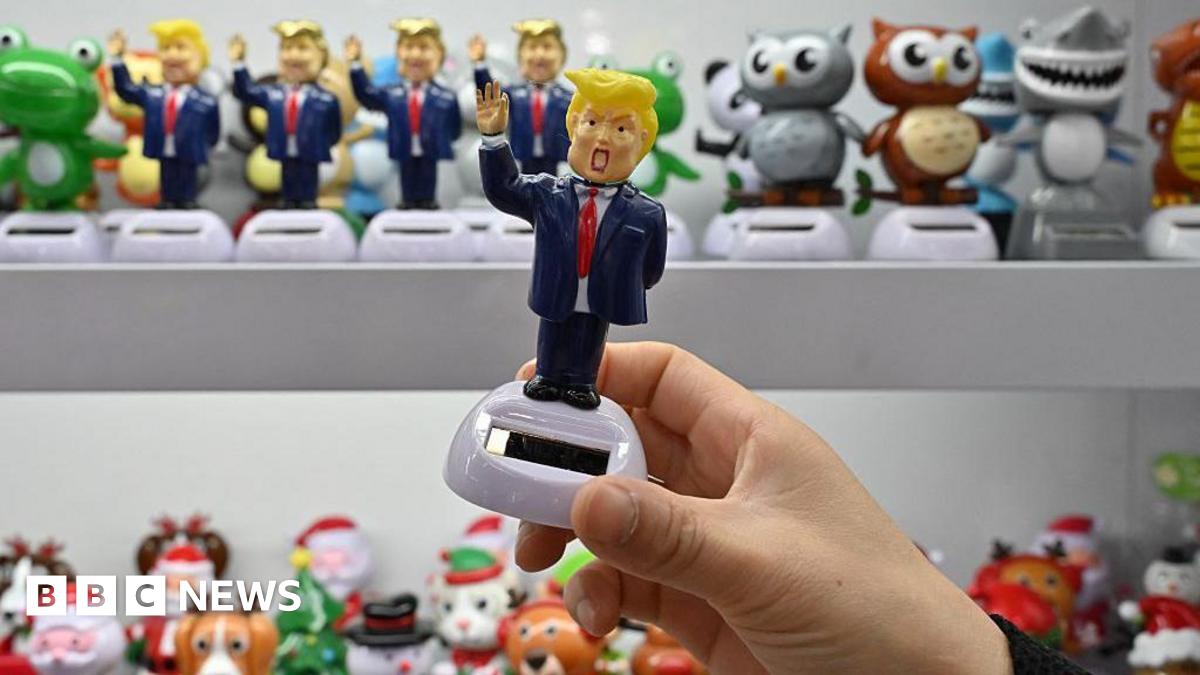Five Powerful Cards China Holds Against US Trade War
The ongoing trade war between the United States and China has captivated global attention, leaving many wondering about the potential outcomes. While the US wields significant economic power, China possesses several powerful cards that could significantly influence the trajectory of this conflict. Understanding these cards is crucial to comprehending the complex dynamics at play.
This article delves into five key advantages China holds, examining their potential impact on negotiations and the overall economic landscape.
1. The Immense Domestic Market:
China boasts the world's second-largest economy and the largest consumer market. This immense domestic market provides a significant buffer against external pressures. While US tariffs might impact Chinese exports, the vast domestic demand can partially offset these losses. China's focus on cultivating its internal market, through initiatives like Made in China 2025, allows it to lessen its reliance on external trade, reducing the impact of US sanctions. This internal resilience is a powerful negotiating tool.
- Key takeaway: China's self-sufficiency strategy diminishes the effectiveness of US trade restrictions.
2. Control Over Rare Earth Minerals:
China dominates the global supply of rare earth minerals – essential components in many high-tech products, including smartphones, electric vehicles, and military hardware. Restricting or manipulating the supply of these minerals could significantly impact US industries and global technological advancements. This leverage gives China considerable bargaining power in trade negotiations. The US's dependence on China for these crucial resources represents a significant vulnerability.
- Key takeaway: China's control over rare earth minerals gives it significant leverage in trade disputes.
3. Massive Foreign Currency Reserves:
China possesses the world's largest foreign currency reserves, providing a substantial financial cushion against economic shocks. This financial strength allows China to weather economic storms, withstand prolonged trade disputes, and potentially engage in counter-measures such as buying US debt to exert further pressure. The sheer size of these reserves represents a significant deterrent to aggressive US trade actions.
- Key takeaway: China's vast foreign currency reserves provide a strong financial foundation to withstand economic pressure.
4. Strategic Investment in Infrastructure and Technology:
China's significant investments in infrastructure projects – the Belt and Road Initiative being a prime example – are building economic ties with countries around the globe, creating alternative trading partners and reducing dependence on the US market. Simultaneously, China's rapid technological advancements, particularly in areas like 5G and artificial intelligence, are positioning it as a global leader, providing an alternative technological path independent of US influence.
- Key takeaway: China's strategic investments diversify its trade relationships and strengthen its technological independence.
5. A Unified and Centralized Government:
Unlike the US, China operates under a centralized government capable of swift and decisive action. This allows for coordinated responses to trade disputes, facilitating quick adaptation to changing circumstances and effective implementation of counter-measures. This unified approach contrasts with the potentially fragmented and slower response mechanisms of the US political system.
- Key takeaway: China's centralized government enables swift and effective responses to economic challenges.
Conclusion:
While the US possesses considerable economic power, China's strategic advantages, including its vast domestic market, control of rare earth minerals, substantial foreign currency reserves, strategic investments, and unified government, provide it with significant leverage in the ongoing trade war. Understanding these cards is crucial for navigating the complexities of this evolving geopolitical landscape. The future of this trade dispute hinges on how both nations leverage these strengths and address their vulnerabilities. The implications extend far beyond the immediate economic impact, shaping global trade relations and technological development for years to come.

